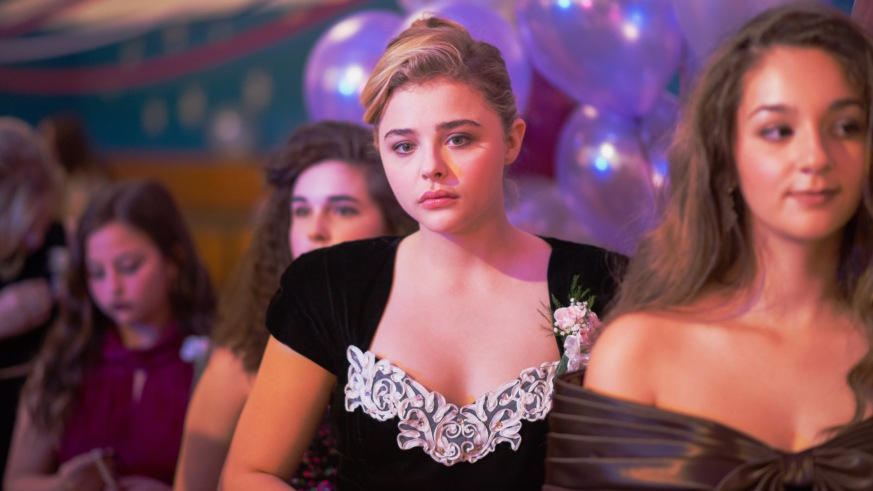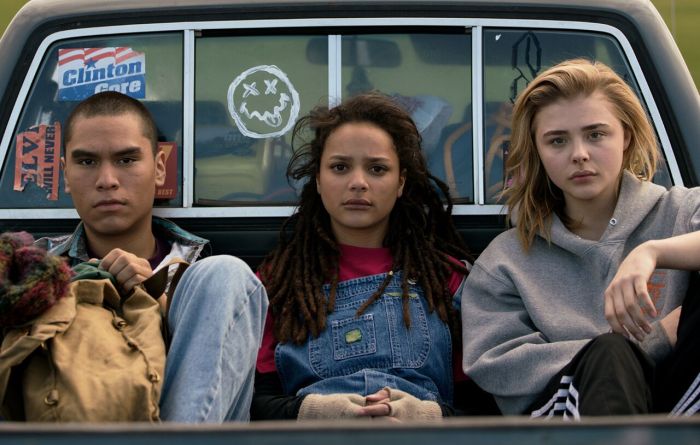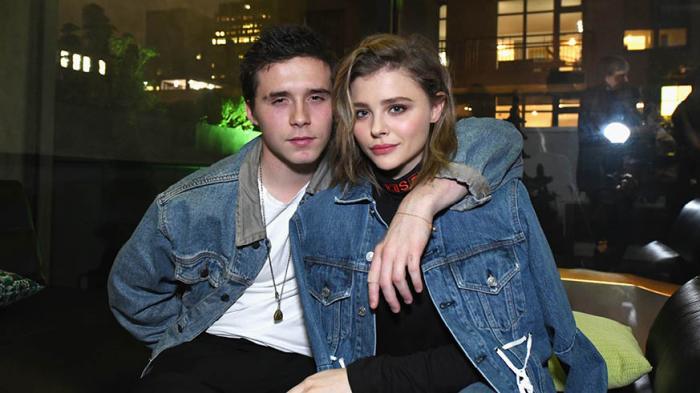The horrors of conversion therapy for members of the LGBTQ community are put on full display in “The Miseducation of Cameron Post.” The new film stars Chloë Grace Moretz as the titular character, a high school teen who’s forced to enter a Christian treatment center to “cure” her attraction for other girls.
Directed by Desiree Akhavan, the flick earned the grand jury prize at this year’s Sundance film festival. Despite the accolades, “Miseducation” struggled to find a distributor, which wasn’t the case for 2018’s other conversion therapy movie, “Boy Erased.” Moretz called out the double standard in an interview with the L.A. Times, saying, “Queer movies should be told through a queer lens and created by queer people,” noting how Akhavan is a “bisexual woman of diversity” while “Boy Erased” was told through a “straight male gaze.”
We caught up with Moretz to chat about the toll conversion therapy takes on people, diversity in Hollywood and why LGBTQ supporters need to head to the voting booths this fall.
Chloë Grace Moretz talks ‘The Miseducation of Cameron Post’

After meeting with real survivors, what surprised you the most about conversion therapy?
For me, I really wanted to adequately depict the conversion therapy scenes in which I was actually going through the psychotherapy and the manipulation. That was a big thing to me, in getting down to the realities of, especially in the film, the iceberg idea and how that was depicted and whether or not that was real. Finding out that it was, it wasn’t always called an iceberg, but that idea of appropriating the gender construct and weaponizing that and using it to manipulate kids to try and find the reasons for their, as they call it, SSA, which is same-sex attraction. That was something I really wanted to figure out.
One of the first questions I asked each survivor was whether or not they really tried. When they showed up, did they immediately go and understand and realize that this is completely hypocritical, or were they just as committed? Unanimously, the answer from everyone was that they were first and foremost very much so committed and they tried their hardest. It wasn’t until years into it, usually around five or six years per person, that they realized that, first of all, the people in power have absolutely no bearing reality, no real reliable education to be able to use the psychotherapy in the way they’re doing it.
It’s interesting to see in the film how language is co-opted to get into these kids’ heads.
What’s hard is that they use simple ideals of therapy in general. The construct isn’t the problem, it’s the content and what they’re trying to do, get across and manipulate. They just steal the construct and the therapy 101 of it all, which is what these camps do. It’s an insidious form of manipulation. Not all the camps are shock therapy and reversion and these aggressive forms. It does take a lot more of an insidious and quiet and silent approach to opening the door within yourself of self doubt. Through that, they let it, like a cancer, run its course throughout yourself as you start to begin to hate who you were born as.
LGBTQ community has made a lot of strides in recent years, but are you worried that all this progress will be lost under the Trump administration?
The reality of, at least conversion therapy specifically, 700,000 people are currently affected and have gone through conversion therapy. 57,000 is the baseline number of young, underage people who’ll be put through conversion therapy within the next five years. That’s just the reality. Only 14 states have made it illegal and in those 14 states, the only legislation that’s passed is to protect minors, which doesn’t revoke the licenses of these therapists. All they do is switch the names around a little bit and they hide the fact that they’re actual conversion and reversion therapy camps or weekend retreats, which they usually go by.
As wonderful were the leaps and bounds of the Obama administration, I think we’ve seen since as the Trump administration has come into effect, we’ve seen laws and legislation that were passed, I mean some of which 50 years ago have started being advocated for, are now on the table to potentially be revoked. I think reality is harrowing and incredibly motivating in a sense that, one of the problems with the Democratic Party is complacency and those who haven’t gone out to vote, even though they’ve been incredibly unhappy with the political standing in America. I think in these midterms we’ll really see whether the Democrats will come out and advocate for what’s right. I do think that because of the massive juxtaposition in this country and this lack of gray area, it’s really polarized people to make decisions. I think you’ll see a lot of young people who might not have been registered to vote, who might’ve felt it as pertinent to get out there and cast their ballot, I think you’re going to see them turning out. I hope you’re going to see them turning out because what we’ve seen is, even if they don’t, the Republicans do and they are going to cast their vote either way.
You made headlines recently for calling out Hollywood over its support for another conversion therapy film, while “Miseducation” struggled to find distribution despite winning the grand jury prize at Sundance. What’s missing from the conversation around diversity?
I think it’s the perspectives. The reason I chose to do this movie was because I trused Desi. Desi being a bisexual, Iranian woman, I knew that she understood adversity. I knew that she would be able to depict this story in a light that felt different. I do think that queer stories in general do need to be told and that we do need to stand together. Queer stories should stand together and we should not conquer and divide.
But, I so wholly stand behind this project and I stand behind Desi because of her diversity and it’s really latent throughout our script and our story. We have a cast of many colors, enthnicities and backgrounds. One thing that really strikes me is that Mathew Shurka, who’s a survivor and a consultant on our movie says is that the one thing about conversion therapy is that it does not discriminate. What is shocking about it is that it’s people from every socio-economic background, from different races, religions and, ultimately, it is fear-mongering, which crosses a lot of different lines. We really wanted to make that come across in our movie. I think this is a story that needs to be told, but I’m just happy that it’s through Desi’s lens for our film.
“The Miseducation of Cameron Post” opens in theaters Aug. 10.

















